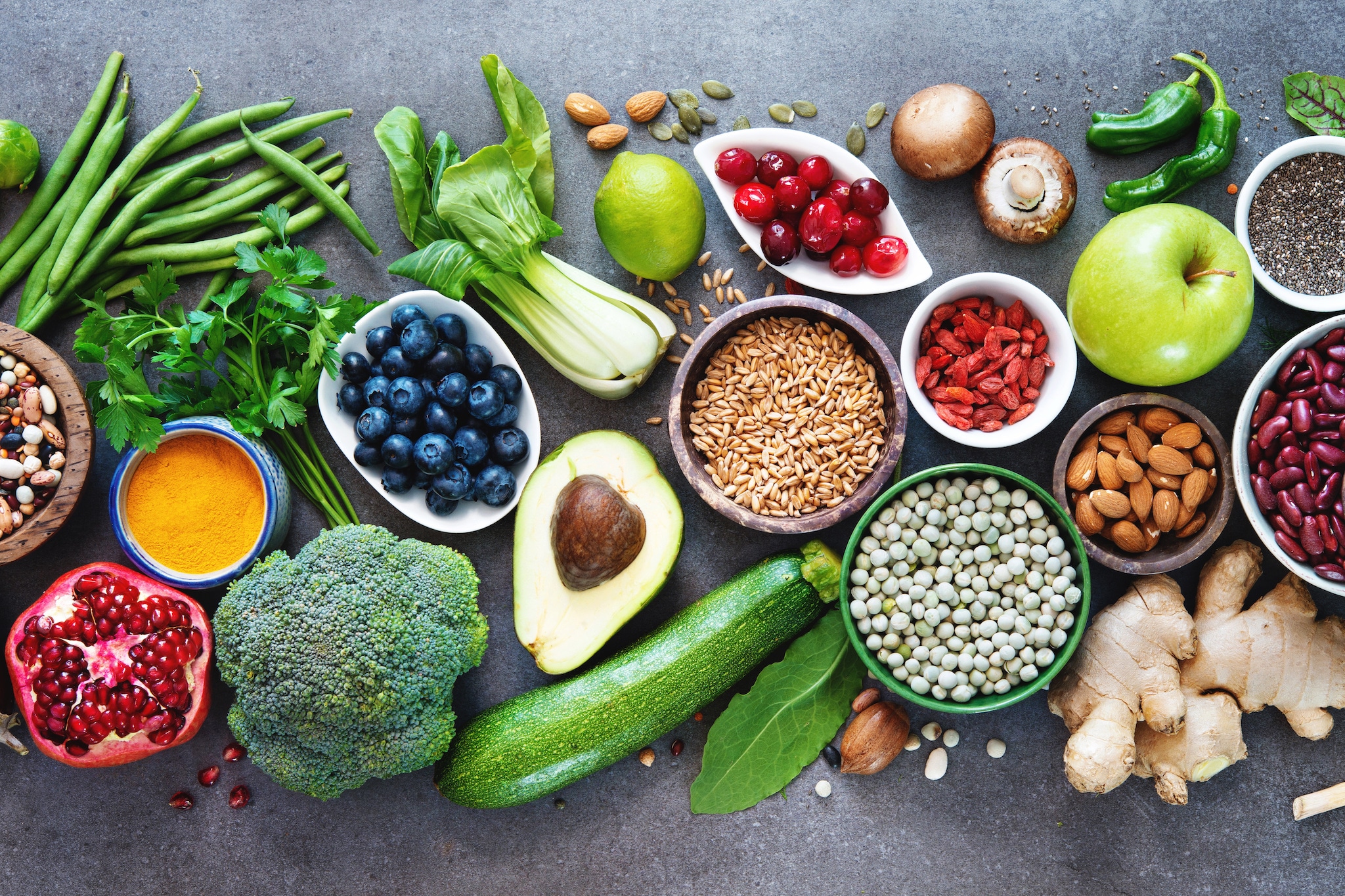Hey! Wait a minute, I am not trying to talk you into becoming a vegetarian. I just want to let you know the benefits of consuming more plant-based foods.
You can benefit from this without being a vegetarian. They are many people who are into this but still eat meats. They are called flexitarians.
You can become a flexitarian but this involves 80% of your meals being the whole plant-based. The remaining 20% can be meat. This will help you enjoy what the vegetarians are enjoying.
Vegetarianism is known as the fountain of youth, flexitarianism will help you partake in this. A whole plant-based diet improves all aspects of your life. It increases your resistance to diseases and even elongates your lifespan.
A whole plant-based diet reverses chronic diseases, cancers, and also helps you maintain a healthy weight. It helps reduces your risks of nutritional deficiencies.
Plant-based diets are rich sources of fiber, minerals, proteins, vitamins, and even healthy fats. They are a great source of phytochemicals which have been known to have a protective effect on your heart and blood vessels.
Below are some of the health benefits of indulging more in a whole plant-based diet.
Health Benefits of Whole Plant-Based Diet
Improves oral health
Plant foods protect your from periodontal diseases. It prevents bad breath, gum disease, gingivitis, and even tooth decay. Oral diseases have been linked to heart disease, protection of the oral health is also protecting your heart.
There are powerful compounds in plants that kill bacteria that cause problems in the mouth. These bacteria are responsible for tooth decay but they are killed by the compounds in plant foods.
Improves your gut flora
Your gut flora is the groups of microbes inhabiting your gut and their genetic material. This makes up 70 to 80% of your immune system and they affect every aspect of your health including your mental health.
Your gut is linked to many systems in your body. If the balance in your gut is affected, diseases can develop. Whole-plant based diet helps you maintain this balance.
The fiber produced by plant foods serve as foods to the healthy bacteria in your gut. This will help them grow and multiply thus defending you against disease pathogens.
The by-products produced by these healthy micro-organisms strengthen your intestinal tracts. They help you absorb essential nutrients from the foods you eat.
Excess processed foods and excess meats decrease the number of your gut flora. This will directly increase the number of diseased pathogens in your body.
Plant-based foods help your gut flora and reduce your risks of diseases. You will experience maximum health when your gastrointestinal tract is functioning properly.
So, engage in healthy living and eating to boost your overall health and resistance against diseases.
Increases your intake of fiber
Plant foods are rich in fiber and this nutrient has a lot of benefits in your body. First of all, it serves as food/fuel for the healthy microbes in your gut (prebiotics).
Fiber prevents cancer, especially that of the colon. A deficiency in fiber has been linked to increased risks of colon cancer. Fiber also aid weight loss by reducing cravings and food intake.
These are some of the health benefits of fiber and unprocessed plant foods are rich in fiber.
Slows down your biological clock
Whole plant-based diet slows down aging and maintains youthfulness. It increases the activities of your telomerase, an enzyme that adds telomeres to the end of the chromosomes.
This prevents them from becoming shorter during DNA replication and this has a huge effect on your lifespan. Studies have shown that a decrease in the loss of DNA telomerase slows down aging.
Increased consumption of whole plant foods reduces the loss of DNA telomeres. This, in turn, will slow down the rate of aging and maintain youthful and healthy skin.
Rich source of antioxidants
Oxidation destroys the body. One way to prevent and fight it is to increase your intake of plant foods. Whole plant foods are rich in powerful antioxidants that fight oxidation in the body.
These antioxidant compounds prevent oxidized fats from circulating in the body. This will prevent the blood vessels from becoming hard, it prevents blood clots which can block blood vessels, and it also prevents inflammation and low blood pressure.
Controls hypertension
Plant-based diet ensures your blood vessels are healthy, flexible, and intact. They reduce your levels of cholesterol and guard against hypertension. It makes you have a healthy weight.
It reduces your risks of hypertension which when untreated leads to heart disease. Excess meats and processed foods lead to fatty deposits on the walls of your blood vessels.
Over time, this will clog your blood vessels and restrict the flow of blood. It also hardens your blood vessels. This, in turn, would lead to hypertension, arthritis, heart disease, stroke, and even heart attack.
A heart attack or stroke occurs when the flow of blood to your heart and brain respectively is completely blocked. Heart attack is one of the leading causes of death worldwide.
Relieves the symptoms of fibromyalgia
This is a medical condition characterized by pain in the soft tissues of the body. The most common place this pain occurs is in the tendons, ligaments, and muscles.
Symptoms of fibromyalgia are fatigue, headaches, increased pains, insomnia, depression, and difficulty staying alert, memory loss, and many more. A plant diet helps relieves these symptoms.
If untreated, this condition can damage every part of your body. One of the ways to treat this is to change your diet and that is by going whole plant-based.
Reduces your risks of heart diseases
From the explanation above, you can see that blocked blood vessels are risk factors for heart disease and a plant-based diet prevents this. A great way to prevent coronary heart disease is to take more of plant foods.
Most of your diet should be whole grains, fruits, vegetables, nuts, oils, and herbal teas. Avoid fries, juices, refined plants, or processed plant foods. Your plant foods should be taken whole and no part thrown away.
Improves your skin health
A whole plant-based diet improves your skin health and prevents and treats acne. This occurs when the oil gland of the skin is affected. This is not a serious health condition but it can leave scars on your face and affect your appearance.
Going plant-based will help clear up your skin. It clears acne faster and it is more effective than facial creams, medications, and antibiotics.
Plant foods contain antioxidants. This helps to clean and eliminate the skin of dead cells. This will give you a clean, healthy, and glowing skin.
Reduces the risks of diabetes
A whole plant-based diet is highly effective in preventing diabetes, especially type II diabetes. It relieves the symptoms of diabetes and prevents insulin insensitivity and resistance.
A sure way to prevent diabetes is to go whole plant-based with little or no meat at all. This will improve your insulin sensitivity and also decrease insulin resistance.
Prevents and treats kidney stones
Excess wastes in the body can accumulate and form crystals and accumulate inside the kidneys. This is a painful condition and it is also known as renal colic.
These crystals come together and become hard lie stones, hence their name, Kidney stones. The body tries to eliminate these through urine and feces but this leads to excruciating pains.
Whole plant foods can prevent and also treat kidney stones. It prevents the formation of these crystals/stones in the first place. They also hydrate you as dehydration is one of the risk factors of kidney stones.
Plants contain the purest water on the planet. Regular consumption of fruits and vegetable hydrates and expels toxins and waste from your body thereby preventing them from accumulating in the first place.
A whole plant-based diet will help you maintain healthy kidneys and put kidney diseases at bay.
Prevents weight gain
If you are trying to lose weight, then a flexitarian diet will help as long as whole plant foods take up 80% of your plate. You can never be obese if you are on a whole plant-based diet.
Plant-based foods increase calorie burning than meats and they are not stored as fats in the body. The weight loss properties of whole plant-based diets are not dependent on exercise.
Going whole plant-based will also reduce your consumption of sugars and processed foods.
Prevents and reduces belly fat fast
Are you struggling with abdominal fats? Going whole plant-based is the best thing to do. This will help you burn fats, lose unhealthy weight, and maintain a healthy weight.
The fiber in whole plant foods helps burn abdominal fats. The phytochemicals present in these foods help your metabolism and promote a healthy weight.
Indulging in a plant-based diet will also help you not to engage in excessive exercise.
Prevents cancer
The best way to reduce your chances of having cancer is to go plant-based. You should also avoid smoking and alcohol as well. Excess of animal foods has been linked to cancers, especially that of the breast and colon.
Whole plant-based foods prevent cancer clusters from forming in the first place. They also control the growth of tumors, their progression, and spread.
Relieves asthma
This is a chronic disease that affects your lungs and its airways. Its symptoms are constant cough, difficulty breathing, and tightness of the chest. Millions worldwide are affected by asthma.
One of the most effective ways to correct this disorder is to go the whole plant-based. It prevents asthma, relieves the symptoms, and thereby prevents it from getting worse.
Children who eat more plant foods have lower risks of asthma than children who don’t.
Relieves depression
Depression is responsible for thousands of deaths each year. One of the most effective ways to treat this is through dietary change. Switching to whole plant foods helps your mental health and protects the brain.
This will reduce your risks of depression, anxiety, and boost cognitive performance, productivity, and creativity. The polyphenols present in plant foods is responsible for this effect.
Protects eyesight
A whole plant-based diet can reduce your risks of blindness. The compounds in plant foods protect your eyes thereby preventing blindness.
The four main causes of blindness are macular degeneration, cataracts, diabetic retinopathy, and glaucoma. All these can be prevented when you go whole plant-based.
Your foods should be 80% or more of fruits, vegetables, nuts, etc. All these will give your eyes the vital nutrients needed.
Boosts fertility
Plant foods help in balancing the levels of hormones, prevent and treat PCOS, eliminate toxins, treat insulin resistance, and other disorders that cause infertility.
Infertility affecting men and women can be reversed when a whole plant-based diet is embraced.
Treats dysmenorrhea
This is also known as painful menstruation. Bad foods and nutritional deficiencies, especially that of magnesium are the main causes of dysmenorrhea.
This condition is characterized by cramps and pains around the abdomen when menstruating. This starts before or at the onset of menstruation.
It can last for days. Diet plays a huge role in dysmenorrhea and one of the best ways to help yourself is to go whole plant-based. It will reduce the pain and over time, you won’t feel the pain again.
Plant foods will handle the root causes of dysmenorrhea such as nutritional deficiencies, toxin overload, hormonal imbalances, pelvic inflammatory diseases, endometriosis, and many more.
Increase your intake of fruits, high fiber foods, whole grains, beans, and vegetables. Also, include herbs in your diet, examples are ginger, turmeric, cloves, etc. You can add to your foods or take them as teas.
Saves money
Plants foods are cheaper when compared to animal foods and products. Apart from the health benefits, a plant diet will help you save a lot of money. It also saves the environment.
How to Increase Your Intake of Whole Plant-Based Diet
1. Be deliberate about increasing your intake of plant foods
You have to intentionally cut back on meats and animal products and increase your intake of plant foods. This is the first step to help you and you have to be intentional about this.
This will make the transition easier and also help you develop taste for plant foods. A good way to go about this is to include vegetables in all your meals, including snacks and breakfasts.
2. Increase your standards on meat and animal produce
When you do this, you will fall on plant-based foods mostly. Remove unhealthy meats from your diets such as processed meats, hot dogs, bacon, sausage, and GM animals. All these increase your risks of cancer and heart disease.
These meats are carcinogenic. They increase your risk of colorectal cancer. Gradually replace these with wild-caught fatty fish which are extremely rich in omega-3 fatty acids.
3. Find your flexitarian style
Apart from ensuring that vegetables are in all your meals and snacks, you should choose a day of the week where you go meatless. This is a great boost to your quest for eating healthily.
You can gradually increase the number of days in a week and before you know it, you might be eating meats once a week.
4. Seek support group
You can make yourself accountable to a friend or you seek a support group to join. There are many groups online, especially on social media.
There are also apps available to help you with your dietary changes.
References;
- Plant foods and health NCBI , NCBI , NCBI , NCBI , NCBI , NCBI , NCBI , NCBI , NCBI , NCBI ,
- Plant foods and heart disease O , BMJ , NCBI , NCBI , NCBI , NCBI , NF , NCBI , AJE , AHA ,
- Plant foods and respiratory system NCBI , WOL,
- Plant foods and cancer BMJ , NCBI , NCBI , NCBI , NCBI , NCBI , NCBI , NCBI , NCBI ,
- Plant foods and diabetes NCBI , NCBI , NCBI , NCBI , NCBI , NCBI , NCBI ,
- Plant foods and arthritis and kidney stones NCBI , SD , NCBI , NCBI , NCBI , NCBI ,
- Plant foods and depression NCBI , NCBI , NCBI , NCBI , NCBI ,
- Plant foods and skin NCBI , NCBI , NCBI ,
- Plant foods, environment , and money
- Plant foods and fertility NCBI , NFP









